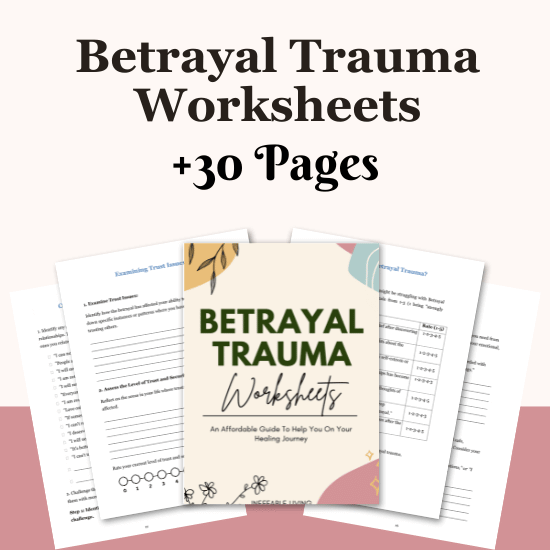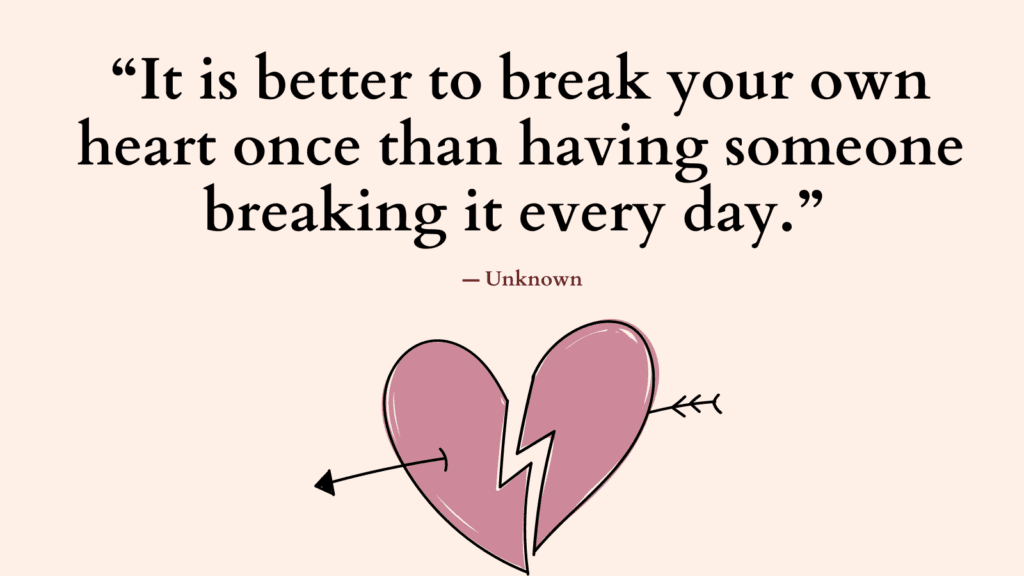In this post you’re going to learn all about betrayed spouse cycle.
Betrayed Spouse Cycle
The “Betrayed Spouse Cycle” refers to the emotional and psychological journey that a person goes through after discovering infidelity in their relationship.
This cycle can encompass a wide range of emotions and stages, reflecting the complexity and pain of dealing with betrayal.
While not everyone will experience these stages in the same order or intensity, many find commonality in the phases outlined below:
1. Shock and Disbelief
Initially, there may be a sense of shock or numbness upon discovering the betrayal.
This can be accompanied by disbelief, as the reality of the situation may seem impossible to accept.
2. Denial
Following the initial shock, there may be a phase of denial where the betrayed spouse may try to minimize the severity of the betrayal or find reasons to doubt the evidence before them, hoping to avoid the pain of acceptance.
3. Anger
Anger is a common and natural response.
This can be directed at the partner who committed the betrayal, the person they were involved with, or even themselves for not seeing the signs earlier.
Anger can vary in intensity and duration.
Related: 7 Stages Of Betrayal Trauma (+7 Tips On How To Find Peace After Betrayal)
4. Bargaining
In this stage, the betrayed spouse may try to negotiate either with their partner or internally.
They might try to find ways to “fix” the situation or make deals in hopes of returning to how things were before the betrayal.
5. Sadness and Despair
As the reality sets in, deep sadness, grief, and despair can follow.
This reflects mourning the loss of trust and the relationship as it was known.
6. Obsession
The betrayed spouse may become obsessed with the details of the affair, constantly seeking more information about what happened, questioning their partner, and ruminating on the events.
7. Fear and Insecurity
Fear of the future, the potential loss of the relationship, and feelings of insecurity about oneself and one’s desirability can become prominent.
8. Guilt and Shame
Some individuals may experience guilt or shame, wrongly blaming themselves for their partner’s infidelity.
They may dwell on what they could have done differently.
Related: Betrayal Trauma Test: Do I Have Betrayal Trauma?
9. Acceptance
Eventually, there may come a phase of acceptance, where the betrayed spouse starts to accept what happened and recognizes it as part of their past.
This does not mean the pain is completely gone, but there is an acknowledgment of the reality of the situation.
10. Rebuilding or Moving On
The final stage involves making a conscious decision about the future.
This could mean working on rebuilding the relationship, if both partners are willing and committed to change, or deciding to part ways and focus on healing independently.
Related: Top 12 Tips on Healing From Betrayal Trauma
How to Cope with Betrayal?
Betrayal shakes the foundations of trust and safety in a relationship.
It can lead to a cascade of negative emotions, including anger, sadness, confusion, and shock.
Betrayal can come in many forms, including infidelity, deception, or disloyalty, and the path to healing is often long and complex.
1. Allow Yourself to Feel
Give yourself permission to experience the range of emotions that come with betrayal.
Suppressing your feelings can delay the healing process.
2. Prioritize Self-Care
Engage in activities that nurture your physical and emotional well-being.
Exercise, a balanced diet, sufficient sleep, and mindfulness practices like meditation can significantly impact your mood and resilience.
3. Self-Compassion
Practice self-compassion by treating yourself with the same kindness and understanding you would offer a friend in your situation.
Remind yourself that healing takes time and that setbacks are part of the process.
Related: Betrayal Blindness – What Is It & How To Overcome It?
4. Journaling
Writing about your feelings and experiences can be a therapeutic way to process emotions.
It can help you clarify your thoughts and make sense of what happened.
5. Grieve the Loss
Betrayal often involves a sense of loss, whether it’s the loss of trust, the future you envisioned, or the person you thought you knew.
Allowing yourself to grieve is a vital step towards healing.
6. Rebuilding Trust
If you decide to maintain the relationship, rebuilding trust is a slow and deliberate process that requires commitment from both parties.
Establishing new boundaries and communication rules is essential.
7. Forgiveness
Forgiveness is a personal journey that does not necessarily mean reconciliation.
It’s about letting go of the hold that anger and resentment have on you, for your well-being.
Related: 17 Trauma Journal Prompts To Support Your Healing
8. Learning from the Experience
Reflect on what the experience has taught you about yourself, your boundaries, and your values.
Use these insights to strengthen your relationship with yourself and with others in the future.
9. Rebuilding Your Life
Whether you choose to stay in the relationship or move on, focus on rebuilding a life that aligns with your values and aspirations.
Engage in activities and pursue goals that bring you joy and fulfillment.

Conclusion
Coping with betrayal is a deeply personal and often painful process that requires time, patience, and self-compassion.
While the journey may seem daunting, it is also an opportunity for profound personal growth and transformation.



